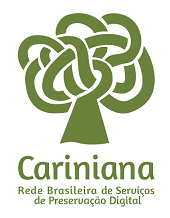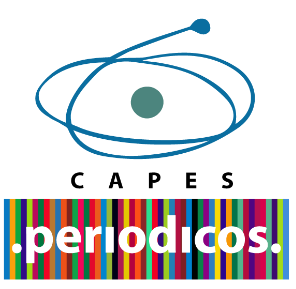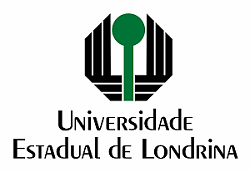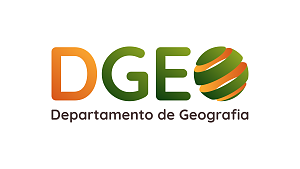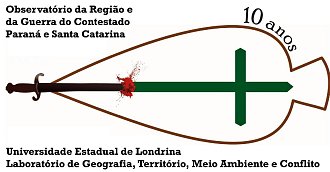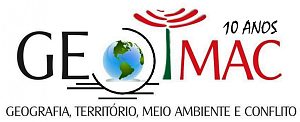Frühromantik influences on Alexander von Humboldt's conception of nature: issues for today's Physical Geography
DOI:
https://doi.org/10.5433/got.2014.v1.18163Keywords:
Frühromantik, Humboldt, Nature, Physical Geography, Ontology.Abstract
This article aims to demonstrate the influence of frühromantik on Alexander von Humboldt's conception of nature in order to show that he has been a gatekeeper to this vision in scientific geography. Frühromantik breaks up the Cartesian-Newtonian Nature and Rationale while introduces a perspective on ontology and not on epistemology because it emerges from a conception of an organic Nature and Rationale driven by complexity among the rational and the sensible. In a comparison context Naturphiosophie and Schelling's philosophy of nature stand out due to the vision of nature compared to a dynamic and perpetually interconnected cosmos in addition to the strong influence of poets and philosophers. This philosophical reflection emerges from Alexander von Humboldt as a methodological proposal for geography that takes geographical landscape resulting as product of the interconnection between the rational and the sensible. Reflections on frühromantik and Humboldt potentiate the current theoretical and methodological discussions in physical geography because they bring into the debate a philosophical issue in the current context of new Natures and not questions related to the method or epistemology.
Downloads
References
BEISER, Frederick C. The fate of reason. German philosophy from Kant to Fichte. Cambridge: Harvard University Press, 1987.
______. German Idealism. The struggle against subjectivism 1781-1801. Cambridge: Chicago University Press, 2002.
______. The Romantic Imperative. Cambridge: Harvard University Press, 2003.
BOWIE, Andrew. Schelling and Modern European Phylosophy: an introduction. London: Routledge, 1993.
FURST, Lilian. Romanticism. London: Coltda, 1971.
GUINSBURG, Jacob (Org.). O Romantismo. 2 ed. São Paulo: Perspectiva, 1985.
HUCH, Ricarda. Die Romantik. Tübingen; Stuttgart: Rainer Wunderlich, 1951.
HUMBOLDT, Alexander. Kosmos. Werke, Band VII/1: Darmstädter Ausgabe, 2008.
______. Ansichten zur Natur. Werke, Band V: Darmstädter Ausgabe, 2008a.
HUMBOLDT, Alexander; BONPLAND. Essay on the Geography of Plants. Chicago: Chigado University Press, 2009.
LAMORE, Charles. The Romantic Legacy. New York: Columbia University Press, 1996.
LENOIR, Timothy. Generational factos in the origin of Romantische Naturphilosophie. Journal of the History of Biology, n. 11, p. 57-100, 1978.
______. The Göttingen school and the development of transcendental Naturphilosophie in the Romantic Era. Studies in History of Biology, n. 5, p. 111-125, 1981.
______. Instituindo a ciência: a produção cultural das disciplinas científicas. São Leopoldo: Ed. Unisinos, 2003.
LUKÀCS, Georg. A Teoria do Romance. São Paulo: Editora Duas Cidades/Editora 34, 2000.
MARTINE, Fritz. Deutsche Literaturgeschichte. Kröner: Stuttgart, 1991.
MENHENNET, Allan. The romantic movement. London: 1981.
MILLÁN-ZAIZBERT, Elizabeth. A 'Romantic' encounter with Latin America. In: ERICKSON, Raymond; FONT, Mauricio; SCHWARTZ, Brian (Coord.). Alexander von Humboldt: from the Americas to the Cosmos. Center for Wester Hemisphere Studies, University of New York, New York, 2004. Disponível em: <http://web.gc.cuny.edu/dept/bildn/publications/AlexandervonHumboldt.shtml>
NIVELLE, Armand. Frühromantische Dichtungstheorie. Berlim, 1970.
NOVALIS, F. von H. Pólen: fragmentos, diálogos, monólogo. Tradução de Rubens Rodrigues Torres Filho. São Paulo: Iluminuras, 1988.
______. Werke. Verlag: C. H. Beck, 2001.
______. Heinrich von Ofterdingen. Stuttgart, 2008.
______. Os discípulos de Saïs. Lisboa: Editora Hiena, 1989.
PAZ, Octavio. Os filhos do barro: do romantismo à vanguarda. Nova Fronteira: Rio de Janeiro, 1984.
PIKULIK, Lothar. Frühromantik: Epoche, Werke, Wirkung. München: Beck, 1992.
RIBBAT, Ernst. Die Romantik: Wirking der Revolution und neue Formen literarischer Autonomie. In: ZMEGAC, Viktor et al. (Org.). Geschichte der deutschen Literatur: vom 18. jahrhundert bis zu Gegenwart. Königstein Ts: Athenäum, 1979. v 1/2. p. 92-178.
RICHARDS, Robert. The Romantic conception of life. Chicago: Chicago University Press, 2002.
RÖTZER, Hans Gerd. Geschichte der deutschen Literatur. Buchners Verlag: Bamberg, 2006.
SAFRANSKI, Rüdiger. Romantik: Eine deutsche Affäre. München: Germany, 2007.
SCHLEGEL, A. W (Org.). Die Kunstlehre: Kritische Schriften. Verlag: Stuttgart, 1963. v. 2.
______. Lucinde. Frankfurt a. M.: Ullstein, 1987.
______. O dialeto dos Fragmentos. São Paulo: Iluminuras, 1997.
______. Conversa sobre a Poesia e outros Fragmentos. Tradução de Victor-Pierre Stirnmann. São Paulo: Iluminuras, 1997.
SCHELLING, Friedrich Wilhelm Joseph von. Vorlesungen über die Methode des akademischen Studiums. In: SCHELLING, Friedrich Wilhelm Joseph von. Sämtliche Werke. Stuttgart, Ausburg, 1857. v. 2. Disponível em: <http://archive.org/details/smtlichewerke02sche>
______. Erster Entwurf eines Systems der Naturphilosophie. In: SCHELLING, Friedrich Wilhelm Joseph von. Sämtliche Werke. Stuttgart, Ausburg, 1858. v. 3. Disponível em: <http://archive.org/details/ab1smtlichewe03sche>
______. Escritos filosóficos. Coleção "Os Pensadores". São Paulo: Abril Cultural, 1973.
______. Investigações filosóficas sobre essência da liberdade humana. Lisboa: Edições 70, 1993.
______. Sämmtliche Werke. Total Verlag: Elektronische Version, 1997.
______. Filosofia da Arte. São Paulo: Ed. da USP, 2001.
______. Aforismos para Introdução à Filosofia da Natureza e Aforísmos sobre Filosofia da Natureza. Rio de Janeiro: Ed. da PUC-Rio, 2010.
SPRINGER, Kalina Salaib. A Führomantik e as concepções da natureza, ciência e arte em Alexander von Humboldt. 2013. Tese (Doutorado em Geografia) - Instituto de Geociências, Universidade Estadual de Campinas, Campinas, 2013.
TORRES FILHO, Rubens Rodrigues. O Espírito e a Letra: a crítica da imaginação pura em Fichte. São Paulo: Ed. Ática, 1975.
VITTE, Antonio Carlos. A caixa de pandora à teia do Cosmos: uma contribuição ao debate sobre a reestruturação da geografia física. In: FIGUERÓ, Adriano; FOLETO, E. M (Orgs.). Diálogos em Geografia Física. Santa Maria: Ed. da UFSM, 2011. p. 11-41.
Downloads
Published
How to Cite
Issue
Section
License
Copyright (c) 2023 Kalina Salaib Springer, Antonio Carlos Vitte

This work is licensed under a Creative Commons Attribution-NonCommercial-NoDerivatives 4.0 International License.
Aviso de Direito Autoral Creative Commons
1. Política para Periódicos de Acesso Livre
Autores que publicam nesta revista concordam com os seguintes termos:
- Autores mantém os direitos autorais e concedem à revista o direito de primeira publicação, com o trabalho simultaneamente licenciado sob a Licença Creative Commons Attribution que permite o compartilhamento do trabalho com reconhecimento da autoria e publicação inicial nesta revista.
- Autores têm autorização para assumir contratos adicionais separadamente, para distribuição não-exclusiva da versão do trabalho publicada nesta revista (ex.: publicar em repositório institucional ou como capítulo de livro), com reconhecimento de autoria e publicação inicial nesta revista.
- Autores têm permissão e são estimulados a publicar e distribuir seu trabalho online (ex.: em repositórios institucionais ou na sua página pessoal) a qualquer ponto antes ou durante o processo editorial, já que isso pode gerar alterações produtivas, bem como aumentar o impacto e a citação do trabalho publicado (Veja O Efeito do Acesso Livre)
- Os autores cedem à Geographia Opprrtuno Tempore, direitos exclusivos de primeira publicação, com o trabalho simultaneamente licenciado sob a Licença Atribuição-NãoComercial-
CompartilhaIgual 4.0 Internacional. Esta licença permite que terceiros façam download e compartilhem os trabalhos em qualquer meio ou formato, desde que atribuam o devido crédito de autoria, mas sem que possam alterá-los de nenhuma forma ou utilizá-los para fins comerciais. Se você remixar, transformar ou desenvolver o material, não poderá distribuir o material modificado






